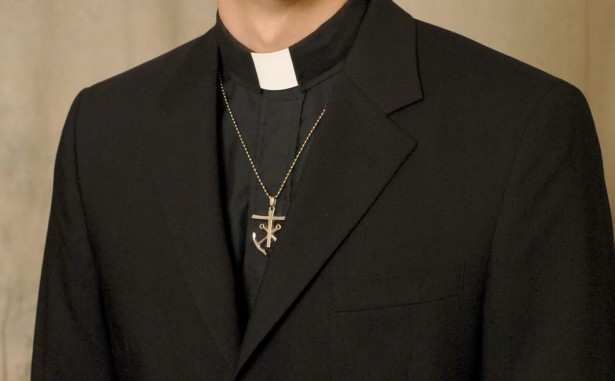South Dakota High Court Green-lights Native Childhood-sex-abuse Case
By Stephanie Woodard
After dismissing multiple American Indian childhood-sexual-abuse lawsuits against the Catholic Church, the Supreme Court of South Dakota has allowed one suit to go forward. In the civil complaint—named R.B.O., after the initials of one of the eight Native Americans who brought it—the plaintiffs allege they were sexually molested and assaulted while minors at St. Joseph’s Indian Mission School, on the Lower Brule Indian Reservation, in South Dakota. Defendants include the Catholic Diocese of Sioux Falls; the religious order Congregation of Priests of the Sacred Heart, which has long run St. Joseph’s; and several priests, brothers and nuns, who plaintiffs say worked at the school. Given the passage of time since the alleged assaults, several individual defendants have died; however, Father William Pitcavage, Father Thomas Lind and Brother Matthew Miles are still living. The high court’s ruling affirmed Circuit Court Judge Bradley Zell’s earlier decision, denying the defendants’ request that the case be dismissed because the plaintiffs hadn’t followed South Dakota’s process-serving procedures. Zell and the Supreme Court agreed the defendants had received notice of the suit in accordance with state law. “It’s a partial victory for the plaintiffs in a long, knockdown-drag out fight,” said Vito de la Cruz, Yaqui, attorney with one of the plaintiffs’ representatives, Tamaki Law, in Washington State. In hard-fought cases like these, the defendants throw up many procedural barriers, de la Cruz explained. “With the plaintiffs over this hurdle, the suit can proceed, hopefully all the way to trial. Now, the case goes back to Judge Zell, who will confer with both sides on the next steps.” The diocese did not respond to requests for a comment. Father Tom Cassidy, provincial superior of the U.S. Province of Priests of the Sacred Heart, said, “Our religious community will continue to cooperate fully with authorities during the legal process. I pray for a just conclusion for all parties involved.” In its opinion, the Supreme Court mentioned, but did not discuss, a 2010 amendment to South Dakota’s statute of limitations for childhood-sexual-abuse claims, preventing those over 40 from suing institutions (such as the Catholic Church). This age group includes nearly all Native Americans from the pre-1980s boarding-school era, who have brought many such lawsuits in South Dakota, prompting charges that the legislature targeted them. When asked why the court introduced, then ignored, the amendment, de la Cruz said he could only speculate: “Since the court took a strict view of compliance with process-serving statutes, I’m guessing they’ll take a strict view of the amendment as well.” What exactly that means is unclear, though, and de la Cruz said further comments he might make would be “reading tea leaves.” The confusion arises because the language of the 2010 amendment—written as a “constituent bill” by an attorney for Congregation of Priests of the Sacred Heart—does not claim the measure is retroactive. Therefore, some say, it can’t be applied to cases like R.B.O. that were already in the system when the amendment became law on July 1, 2010. On the other hand, a 1997 South Dakota Supreme Court decision made retroactive an earlier expansion of opportunities to bring sexual-abuse claims in the state. Following that logic, Judge Zell has said, the 2010 amendment would be retroactive, too, creating what he has called a “quandary.” Meanwhile, back at the legislature, state representative Steve Hickey (R.-District 9, Minnehaha County) has submitted a bill that would rescind the 2010 amendment. The measure will likely come up for a vote in late January or early February, Hickey said.
|
.
Any original material on these pages is copyright © BishopAccountability.org 2004. Reproduce freely with attribution.
